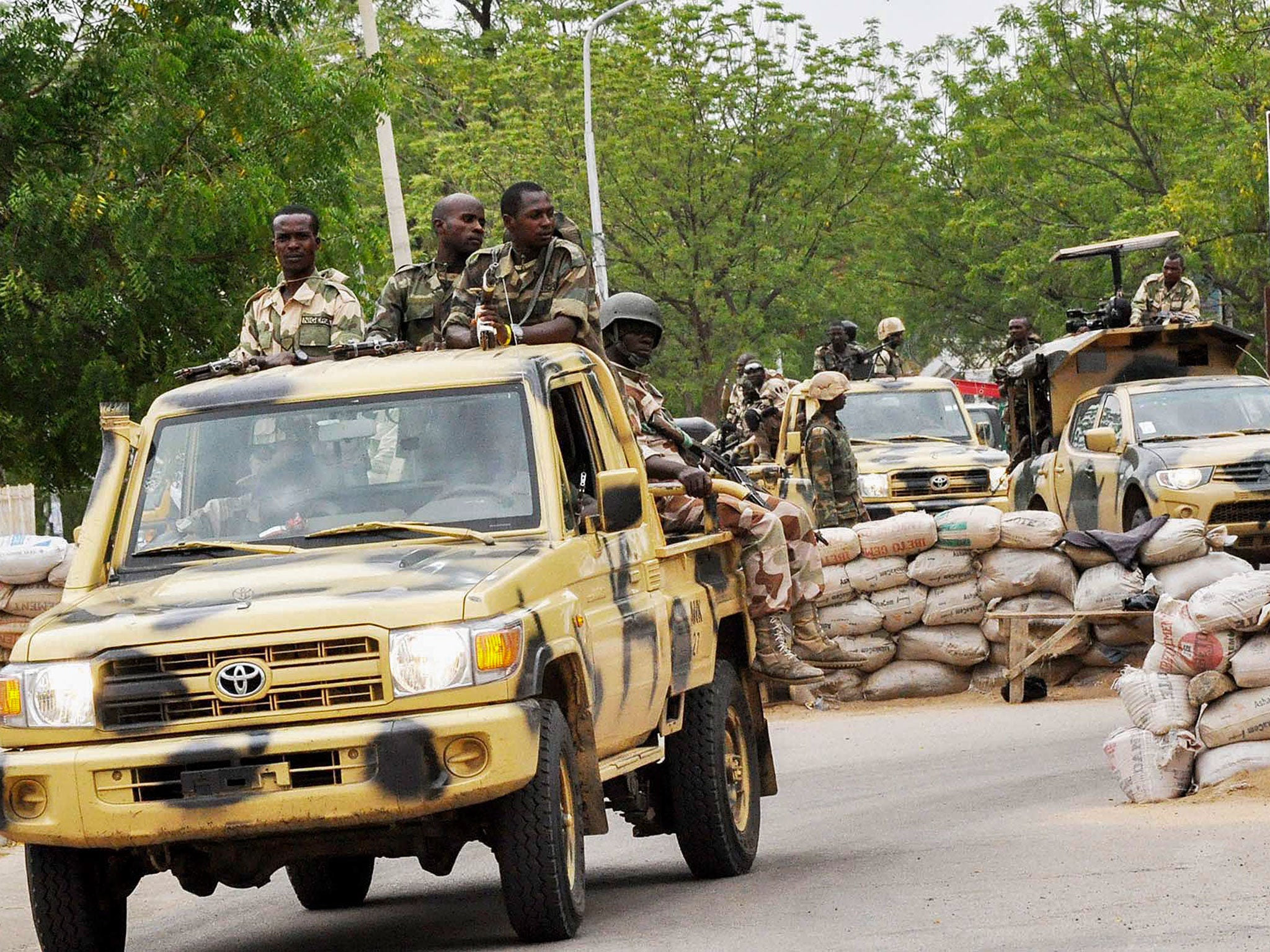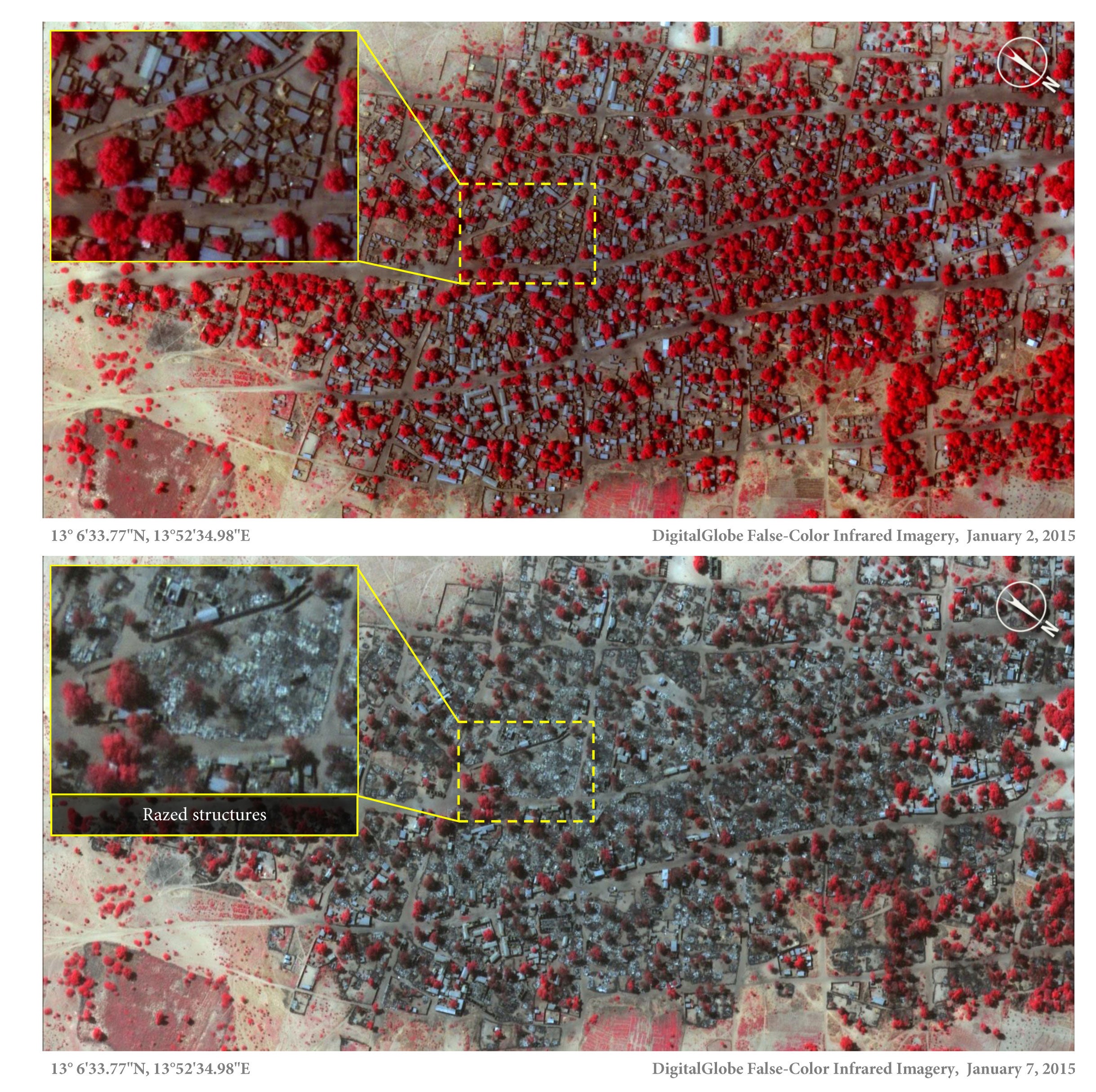Boko Haram attack: Woman 'killed while giving birth' during Baga massacre
At least 150 people were killed by the insurgent group last week

Your support helps us to tell the story
From reproductive rights to climate change to Big Tech, The Independent is on the ground when the story is developing. Whether it's investigating the financials of Elon Musk's pro-Trump PAC or producing our latest documentary, 'The A Word', which shines a light on the American women fighting for reproductive rights, we know how important it is to parse out the facts from the messaging.
At such a critical moment in US history, we need reporters on the ground. Your donation allows us to keep sending journalists to speak to both sides of the story.
The Independent is trusted by Americans across the entire political spectrum. And unlike many other quality news outlets, we choose not to lock Americans out of our reporting and analysis with paywalls. We believe quality journalism should be available to everyone, paid for by those who can afford it.
Your support makes all the difference.A woman was killed while giving birth to a baby boy during a horrific attack by Boko Haram fighters in Baga, north-east Nigeria, Amnesty International has reported.
The human rights charity said that it had collected several eyewitness testimonies to the massacres in the neighbouring towns of Baga and Doron Baga (also known as Doro Gowon) last week, in which at least 150 people died and more than 3,700 homes and buildings were damaged or destroyed.
One man told the organisation that militants were shooting "indiscriminately", killing small children and even a woman who was in labour.
“Half of the baby boy is out and she died like this,” he said.
Read more: Boko Haram have just murdered 2,000 people - so why aren't we talking about it?
Read more: Boko Haram attack: Before and after satellite images
"They killed so many people," he said. "I saw maybe around 100 killed at that time in Baga. I ran to the bush. As we were running, they were shooting and killing."
Others who fled described seeing many more corpses in the bush. “I don’t know how many but there were bodies everywhere we looked,” a woman told the charity.
Amnesty has said that the testimonies "match" the destruction shown in two 'before and after' satellite images taken on 2 and 7 January, showing the north-east Nigerian towns being razed to the ground.

"Interviews with eyewitnesses as well as with local government officials and local human rights activists suggest that Boko Haram militants shot hundreds of civilians," the charity reported – although an initial death toll of 2,000 people has since been downgraded by the Nigerian Government to 150.
Human Rights Watch said the exact death toll was unknown, with estimates ranging from "dozens" to 20,00 or more.
"No one stayed back to count bodies," one local resident told the organisation. "We were all running to get out of town ahead of Boko Haram fighters who have since taken over the area."
Read more: Archbishop calls for same 'spirit' of support as France
Read more: Boko Haram massacre: Insurgents slaughter at least 150
This is not the first time that the Baga area has been attacked. Human Rights Watch reported in April 2013 that a Nigerian military raid, in response to a Boko Haram assault which killed a Nigerian soldier, had resulted in "the killing of local residents and the large-scale and deliberate destruction of property".
Using satellite imagery, the group found that a total of 2,275 buildings had been destroyed, and 125 severely damaged. But their findings were refuted by the Nigerian National Space Research and Development Agency (NASRDA), the Nigerian government and military officials.
"In time, we hope to provide more accurate figures on the number of those killed in the attacks and information about them," Human Rights Watch said in a statement, which was published on Thursday.
"But for now, credibly used satellite imagery is the closest we will get to the truth."
Subscribe to Independent Premium to bookmark this article
Want to bookmark your favourite articles and stories to read or reference later? Start your Independent Premium subscription today.
Join our commenting forum
Join thought-provoking conversations, follow other Independent readers and see their replies
Comments